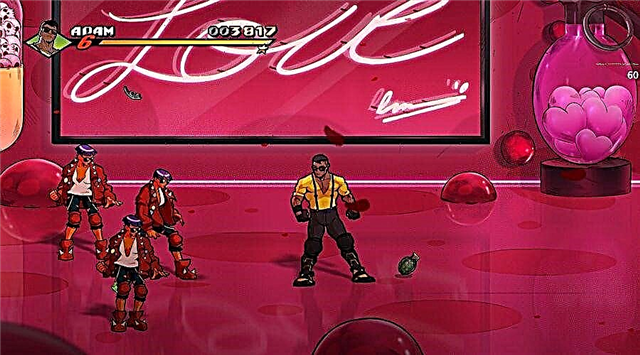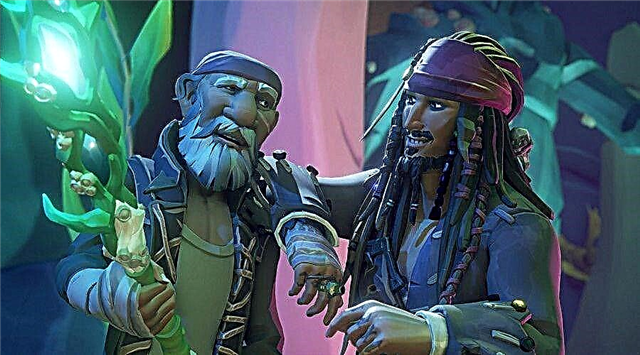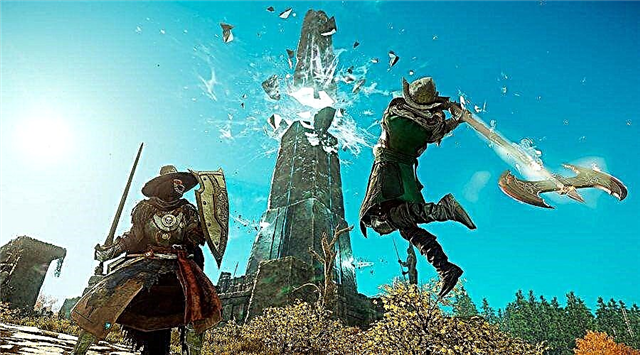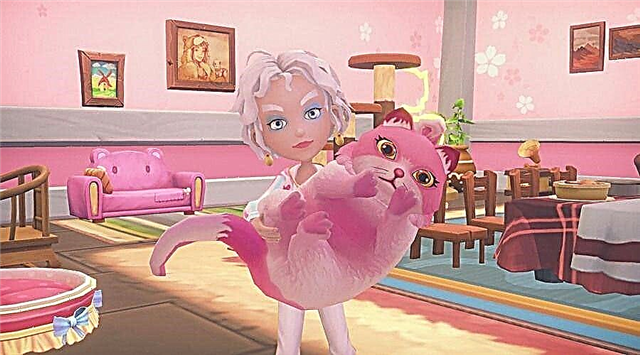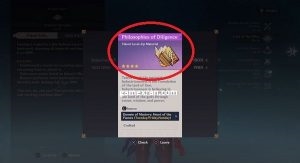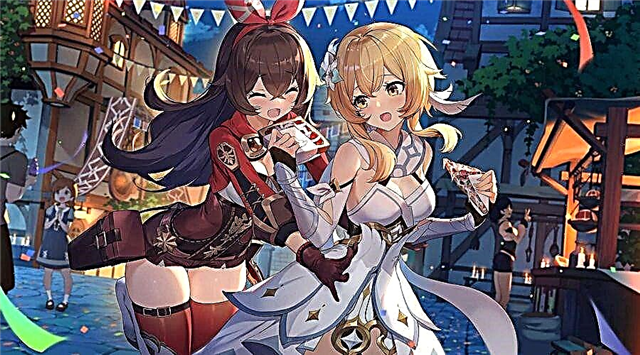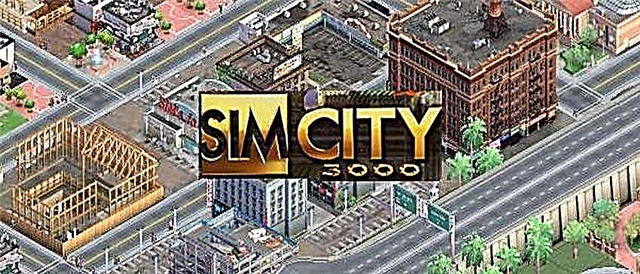For a guide on how to learn blacksmithing in Mount & Blade II: Bannerlord and make (craft) weapons, read the guide. Mount & Blade II: Bannerlord introduces addictive blacksmithing mechanics.
In fact, it is a weapon craft that can be used to produce swords, spears, axes and other deadly things without wasting unnecessary money. Why stuff the merchants' wallets with your hard-earned gold? Run to the smithy and get to work!
How to buy a workshop
As I wrote above, 16,000 dinars will be useful to you. Along with collecting the required amount, you will need to open the initial stages of trade and blacksmithing. To do this, destroy the villains, collect loot and sell it in the markets of villages and towns. And do not forget: the larger the city, the more profit you will gain. Similarly, you can melt the loot to acquire separate materials, from which you can then create something more severe. To this, the cost of materials for dismantled weapons is often higher than the prices for the weapon itself.
At the moment, you can become the owner of a forge or a wood workshop. Everything depends on your abilities. While staying in the city with any enterprise that brings passive income (all are professional), talk to an employee and purchase a workshop. Then it will be necessary to provide the workshop with materials such as timber or coal. You can purchase them in nearby towns. Forges and wood workshops will be able to deliver the proceeds much earlier, since it will be easier for you to find raw materials for them.
How craft works
Move to the nearest big city and go to the forge. There you can craft any weapon and clean up materials. In a day it will come out to make less than one blade, ax, mace, etc. As soon as the blacksmith completes the task, he will disappear and appear only the day after tomorrow. But, decision points can be accumulated - one for every day.
Where to get resources
There are nine different materials in the game with which you can create weapons:
- Iron ore;
- Crude iron;
- Wrought iron;
- Iron;
- Steel;
- Pure steel;
- Damascus steel;
- Hardwood;
- Charcoal.
There are 3 methods for extracting materials. You can buy them in a big city, rob a caravan, or melt a weapon. The 3rd option is more profitable and simpler. Pick a weapon you don't need and notice what you get for eliminating it. Apart from this, the skill that is necessary for the promotion of forge professionalism is taken for smelting. And in the same way, you can purchase materials when developing the rarest weapons. For example, for a 2nd or 3rd level blade craft, additional steel is accepted.
What to do in the forge
Visit the forge to make a dagger, dart, mace or sword. But even after becoming a master blacksmith, you still cannot create armor, shields, bows or crossbows. Look in the lower left corner and you will notice a bar with difficulty percentages. The right norm is your art, and the left is how difficult it is to create an object. Each weapon has a different difficulty. For example, axes and spears are quite easy to manufacture. And they do little damage. If you want to destroy opponents with a couple of blows, make a sword, but it is much more difficult to melt it.
The difficulty in smelting is directly dependent on the ingredients. The higher their level, the more difficult it is to make a high quality sword or mace. By the way, charcoal is required to smelt any weapon. To increase the possibilities for smelting good weapons, take a professional blacksmith into the clan. You can inquire with the list of friends by pressing on the portrait of the protagonist - located in the lower left corner. Then make a weapon and you can dream up a title for it.
How to clean up resources
To clean up materials, expand the Refine tab. Pick any component and see what you get in return. For example, two woods can be exchanged for one charcoal. As the level of professionalism increases, new materials will be added. If you just started playing, you can get hold of wood, coal and steel. Upgrade your profession and soon learn to make Damascus Steel - the best ingredient in Mount & Blade II: Bannerlord.
Getting resources
To get resources for crafting, you have 3 options:
- Take them in a small town that produces them at a discount, or take them in a big town;
- Morale them out of caravans
- Smelt a weapon into its constituent parts and get resources from there.
You can constantly find hardwood and metal ores in large towns to start crafting. As a consequence, you can get hold of other basic steps in the blacksmithing process.
Important nuances when creating weapons
On the forge screen, you will notice a counter on the left. This counter tells us how difficult it is to make a weapon. If your blacksmithing skill, shown to the right of the meter, is higher or equal to the difficulty of the item being crafted, you can make the good or the best version of the weapon you desire. If your level of professionalism is lower, you can still try to make this weapon, but, most likely, you will end up with some wasted item. Any weapon has a different difficulty based on the following factors:
- Weapon class (axes and spears are very easy to make, swords are much more difficult)
- The tier of weapon components you choose (tier 1 components like the base hammer head are much easier to make than the ornate tier IV mace head).
- The size of the components you selected. The slider for each component, passing the midpoint, increases the difficulty. A medium to small ax is easy to make, but making a larger ax increases the difficulty by 1-4 points.
At the bottom of the forge, you will notice all the resources that you can use. It will take 2 units to create an ax. wrought iron and 1 unit. hard wood, and similarly 1 unit. charcoal. Don't forget that any weapon consumes coal when crafting. On the right side of the forge, you can see the components to which you have permission to manufacture your weapons. You can filter them by levels at the top. The example shows that there is a single ax handle. You acquire components in a random way through melting or forging weapons. Any component modifies the weapon in a specific way - changes are made not only visually. For example, the head of a huge ax provides more damage, but is more difficult to control and slightly slower than the head of a small hatchet.
Any level asks for different minerals. Level 1 asks for wrought iron and / or cast iron, level 2 asks for wrought iron and / or iron, as does level 3, etc. Each component requires a different number of minerals. At more belated levels, such as level 5, you may need cast iron, steel and tamasken steel to make only 1 sword. In the lower left corner you can see a portrait of your hero. Press on him to change the friend who makes the weapon. If you have a friend who is considered a good blacksmith, then you better use him!
When you press the "Smith" key, you will notice the result and you can name the weapon if you want. This total will fluctuate in degree from your skill and relative difficulty, and statistics will increase or decrease in degree from the difference among them. Fundamentally: As soon as the game was released for sale, there was an error in it, about which you cannot make other versions of weapons, for example, axes, even if you have the components for their production.In the near future, this should be corrected, but save for each option before creating them.
One of the most important tabs for a blacksmith
You will notice quite a few minerals in the right column. The resources on the right that the arrows point to are those made from the minerals on the left. You see, you can use 2 hard woods to cast 1 charcoal. To make one charcoal, press the Refine button at the bottom of the screen. The example shows that it is impossible to process steel into narrow steel or Tamskin steel in this tab. This is why the hero's blacksmithing level is very low. Keep in mind that you can choose a perk that allows you to upgrade these higher quality steel options. Another sample: when melting 1 spear, you can get 1 hardwood and 1 unit. cast iron, at a consumption of 1 unit. However, one charcoal costs 2 units. solid wood. Is it worth the cost? When smelting products, consider the following main circumstances:
- Are the raw materials worth more than the original product (if considered for sale)?
- Do you need mined resources more than charcoal?
Often the answer will be yes, but don't forget the blacksmith cooldown. What do you need more - a modest spear or a cool sword? The choice is entirely up to you.
Blacksmith Essentials Resources
If you dive a little bit into the arithmetic of the game systems you create, you may find an abundance of useful material. The first thing to be clear is that in Bannerlord, you transform metal ore and hardwood into different types of iron. In the trade menu of each city, you will find both of these fundamental resources. Hardwood can traditionally be purchased in towns or villages for an average of 15 gold, and metal ore can be purchased for an average of 60 gold. These prices are valid with a developed trading skill. You will need a lot of hardwood if you intend to do blacksmithing. Explore your own plot of the game in search of villages that create it a lot, and buy a tree there. Villages will try to sell it to you for about the same price as the city they serve.
Once you have enough tough wood, you can start converting it into charcoal. If you haven't already done so, select the Efficient Charcoal Maker perk. If you did not start with Blacksmithing 25+, then it is worth investing a certain number of points in this experience, since this will greatly speed up the acquisition of the first a certain number of levels. By making 1 charcoal, you gain 15 base XP regardless of the recipe you use. You will do an order of magnitude more coal in this way than when smelting steel ore, so keep that in mind.
Iron smelting process in numbers
Once you have enough charcoal and steel ore, you can craft different types of steel, and each of them will bring you a specific amount of experience.
- Crude Iron = 9 XP each
- Wrought Iron = 18 XP each
- Iron = 27 XP each
- Steel = 63 XP each
Do not forget that the more focus points you have invested in a given experience, as well as the higher your endurance, the higher the acquired skill will be. The largest markup is x10. Now you can see the proceeds from the sale of crafted materials with a trading skill of about 40. With the "Efficient Iron Maker" perk, 8 steel ores and 322 hard woods have the ability to be turned into 21 Steel, 1 iron and 1 unit. cast iron, which have the potential to be sold for approximately ~ 6,486 gold. Raw materials purchased at 50gp for metal ore and 15gp for hardwood are approximately ~ 5,230gp. As a result, the total revenue is ~ 1.256 gold.
With the Efficient Charcoal Maker, 12 steel ores and 248 hardwoods can be transformed into the same 21 Steel, 1 Iron and 1 unit. pig iron sold for ~ 6,486 gold with a profit of ~ 2,166 gold. At the same time, the only drawback is that it takes an additional 2 minutes (which is considered a trifle, taking into account that the whole process can take almost an hour). Taking into account the significant plus to your income, which may only increase in the future, it is much smarter to take "Efficient Charcoal Maker" early in the game.

